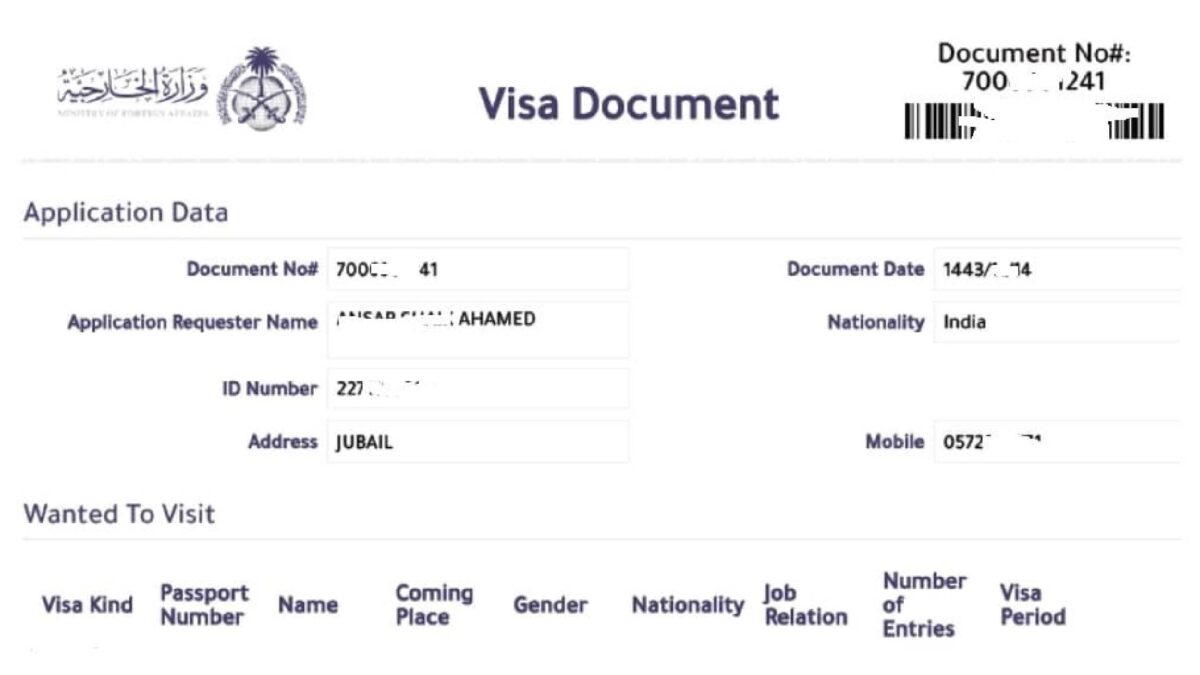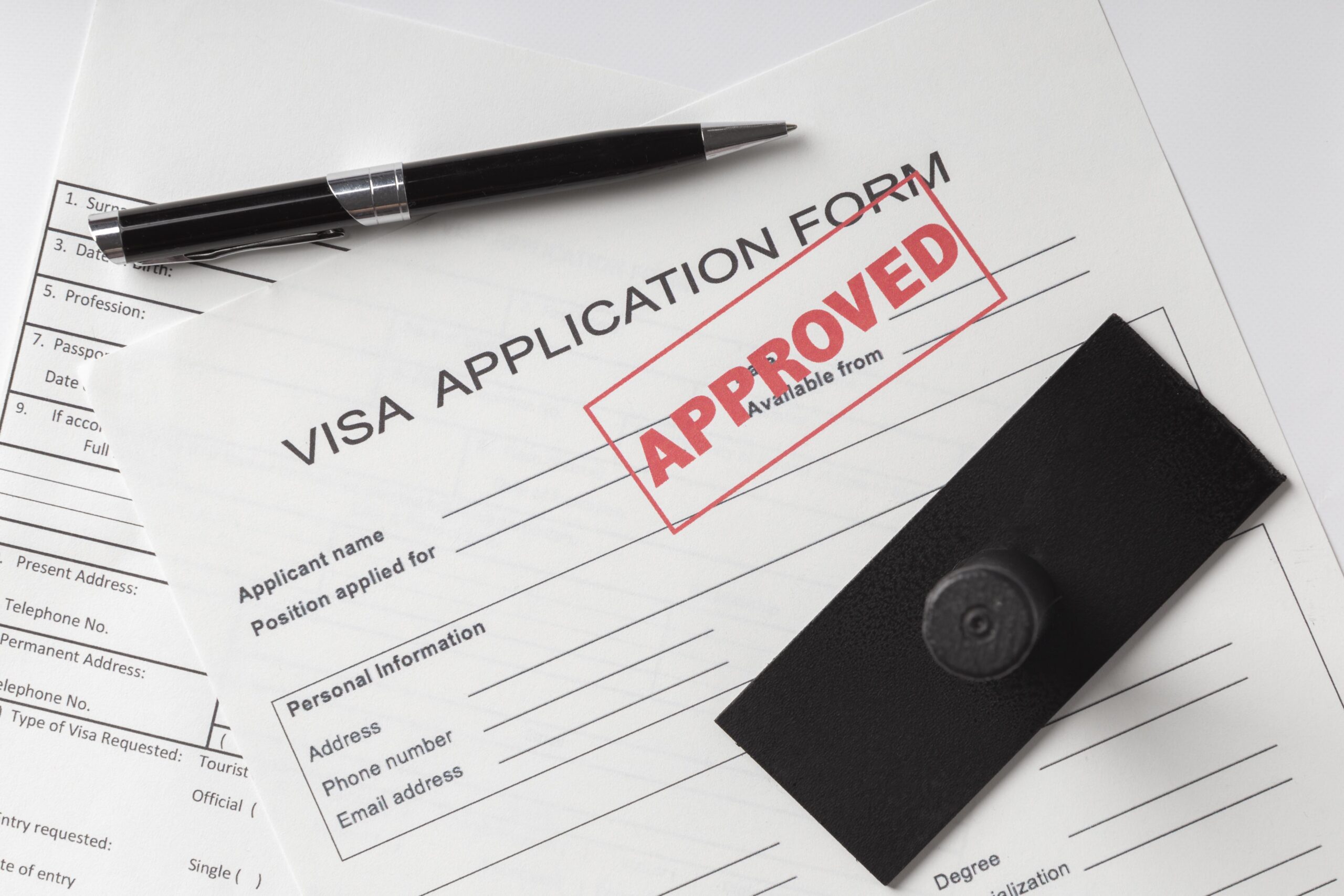For expatriates living in the Kingdom of Saudi Arabia (KSA), bringing family members to stay with them is often a top priority. The MOFA family visa status process, managed by Saudi Arabia’s Ministry of Foreign Affairs (MOFA), plays a crucial role in facilitating this. In this guide, we will delve into the steps, requirements, and tips to track the MOFA family visa efficiently. Whether you’re a first-time applicant or revisiting the process, this article provides all the details you need to ensure a smooth application experience.

What is MOFA Family Visa?
The MOFA family visa allows expatriates working in Saudi Arabia to bring their immediate family members, such as spouses, children, or parents, to the Kingdom. There are two primary types of family visas:
- Permanent Family Visa – Enables family members to reside in KSA for an extended period, typically tied to the sponsor’s residency permit (Iqama).
- Visit Visa – Temporary visas for short-term visits, often granted for up to 90 days with possible extensions.
Both visas require approval from the Ministry of Foreign Affairs (MOFA) before issuance.
How to Apply for a MOFA Family Visa?

The application process for a family visa involves several steps. Here’s a step-by-step breakdown:
1. Prepare the Required Documents
To initiate the visa application process, ensure you have the following:
- A valid Iqama (residency permit) for the sponsor.
- A copy of the sponsor’s passport.
- Marriage certificate (attested) for spouses.
- Birth certificates (attested) for children.
- National IDs for parents (if applicable).
- Proof of relationship, translated into Arabic and attested by relevant authorities.
2. Submit the Online Application
Visit the MOFA e-services portal and log in using your Absher credentials. Fill out the family visa application form with accurate details, including:
- Sponsor’s information.
- Family member details (name, age, relationship, etc.).
- Type of visa (permanent or visit visa).
Once completed, submit the application and note the reference number.
3. Attestation of the Application
The printed application must be stamped and attested by your employer or the Chamber of Commerce. This is a mandatory step to validate the submission.
4. Tracking the MOFA Family Visa Status
After submission, you can track the MOFA family visa status online using the reference number. Visit the MOFA website and navigate to the visa services section. Enter your application number and sponsor’s ID to check the current status.
How to Check MOFA Family Visa Status Online?

The MOFA family visa status can be tracked easily through the official website. Follow these steps:
- Visit the MOFA Website Go to visa.mofa.gov.sa, the official website for visa services.
- Access the Visa Query Section Under the “Inquiry” section, select “Visa Application Status.”
- Enter Required Information Input the following details:
- Visa application number.
- Iqama number or sponsor ID.
- CAPTCHA code for verification.
- Review the Status The system will display the current status of your application. Common statuses include:
- Under Process – The application is still being reviewed.
- Approved – The visa is ready for issuance.
- Rejected – The application has been denied (reasons may be provided).
Tips to Ensure a Smooth Application Process
Navigating the family visa process can be challenging, but these tips will help streamline the procedure:
- Double-Check All Documents Ensure that all required documents are complete, translated into Arabic, and properly attested by relevant authorities.
- Follow Up Regularly Use the MOFA portal to frequently track the KSA family visa status and address any potential issues promptly.
- Comply with Legal Requirements Adhere to the guidelines set by MOFA and Saudi regulations to avoid unnecessary delays or rejections.
- Seek Professional Assistance If you’re unfamiliar with the process, consider consulting a legal advisor or visa service provider for guidance.
Common Issues with MOFA Family Visa Applications
While the process is generally straightforward, applicants may face challenges such as:
- Incomplete Documentation Missing or improperly attested documents can lead to rejection.
- Ineligibility of the Sponsor Sponsors must meet certain criteria, including a minimum salary threshold and specific job categories.
- Application Errors Typos or inaccuracies in the application form can delay processing.
If your application is rejected, you can often reapply after addressing the identified issues.
Frequently Asked Questions (FAQs)
1. How long does it take to process a MOFA family visa?
The processing time varies but typically takes 1-4 weeks. Visit visas are usually quicker to process than permanent family visas.
2. Can I extend a family visit visa?
Yes, family visit visas can often be extended through the Absher platform, subject to MOFA approval.
3. What should I do if my visa application is rejected?
Identify the reason for rejection, rectify the issue, and submit a new application. Consulting with a legal expert may be beneficial.
4. Is a MOFA family visa applicable to all nationalities?
Yes, expatriates of all nationalities working in KSA can apply for a family visa, provided they meet the requirements.

Conclusion
The MOFA family visa process is a vital lifeline for expatriates in Saudi Arabia, enabling them to reunite with loved ones. By understanding the requirements, following the application steps meticulously, and regularly tracking your MOFA family visa status, you can ensure a hassle-free experience. Staying informed about updates and addressing any potential hurdles promptly will make the process smoother and faster. Reuniting with your family in KSA is not just a dream—with the right approach, it’s a definite reality. For more details visit our Latest Insights.





















